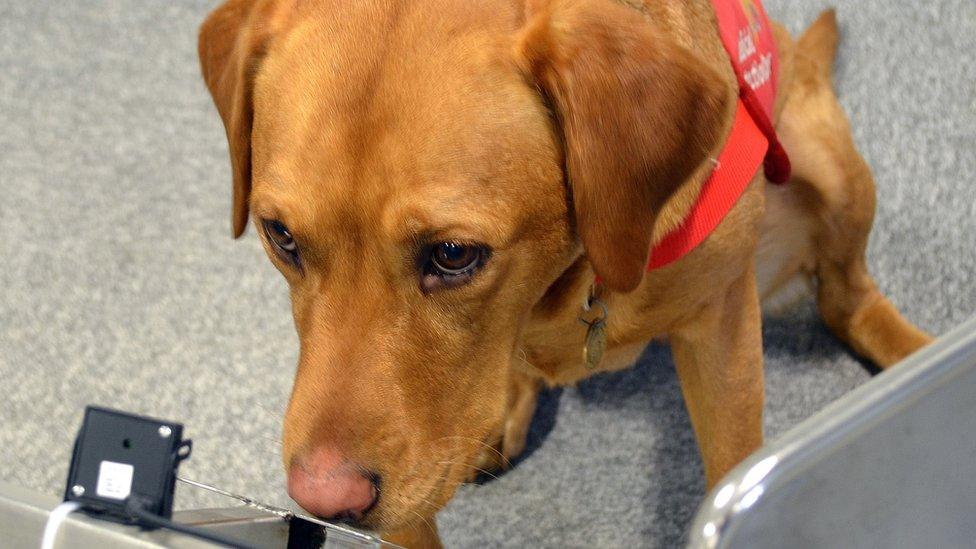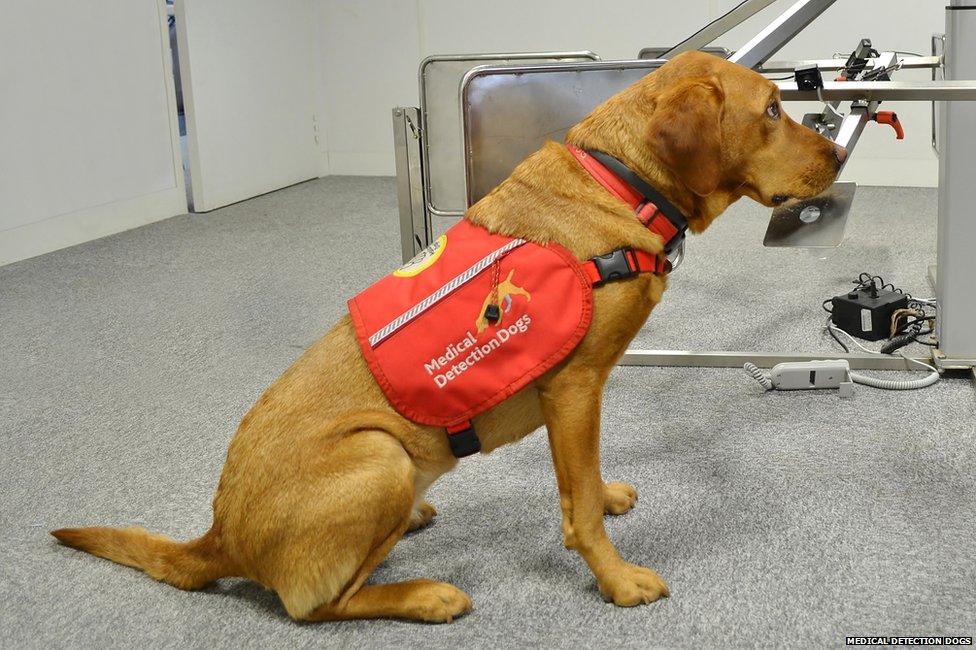How do medical dogs smell cancer?
- Published

Dogs that can sniff cancer have been approved for use in a trial by the NHS.
Medical Detection Dogs, a charity which works with NHS trusts and universities, has had approval from Milton Keynes University Hospital for more trials.
Its first study showed specially trained dogs can detect prostate cancer in urine in 93% of cases.
At the moment the Prostate-Specific Antigen (PSA) test, which has a high "false positive" rate, is used to find out if men need further tests.
How do the dogs detect cancer?
Florin the Labrador is taking part in clinical trials to detect cancer through scent
Cancer "volatiles" travel from the infected cells into the urine as the body tries to dispose of the chemicals.
It's thought that dogs can pick up the odour of volatiles in urine samples.
It's thought through training, the animals can be taught to react to their presence.
Will dogs replace traditional testing methods?
It's too early to know how canine testing may be used, and how widely it could become.
But it's thought that it'll act as a "second-line" check after the traditional Prostate-Specific Antigen (PSA) test.
The PSA test examines levels of proteins produced by the prostate gland and is used to determine if men need a biopsy.
But it has a high "false positive" rate, meaning many men are unnecessarily referred for further tests.
What if a dog doesn't detect cancer?

Each sample is tested by two or three dogs.
If a conclusive result isn't produced, the patient's urine will be tested again the following day.
How are the dogs trained?
According to Medical Detection Dogs, after six month training, dogs can reliably detect whether the urine has cancer traces in it.
During the process, the dogs are conditioned to detect cancer.
Initially, the dogs are rewarded with treats for detecting any urine smell, but later they are only rewarded when they detect cancer in urine samples.
Can my own pet dog detect cancer?
There's no proper research to show that untrained dogs can detect cancer, but there is some evidence.
Dr Claire Guest, co-founder of Medical Detection Dogs, realised she had breast cancer after her dog, Daisy, began nudging an area of her chest which felt bruised.
Tests later revealed she had two tumours.
Other owners have reported behaviour changes in pets prior to being diagnosed with cancer.
Follow @BBCNewsbeat, external on Twitter, BBCNewsbeat, external on Instagram, Radio1Newsbeat, external on YouTube and you can now follow BBC_Newsbeat on Snapchat